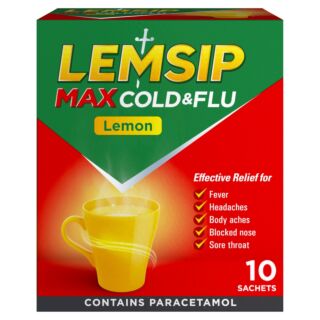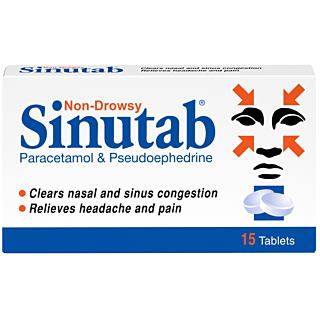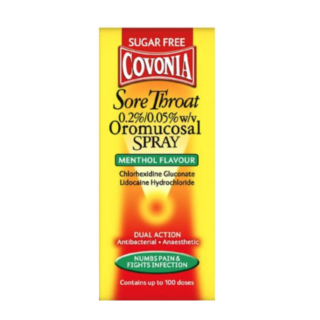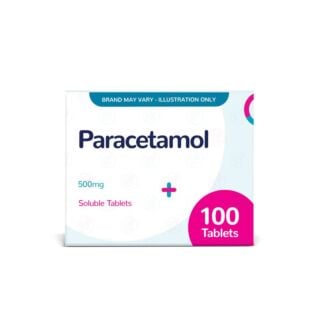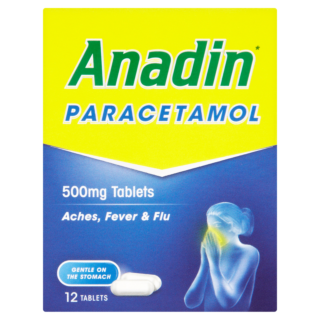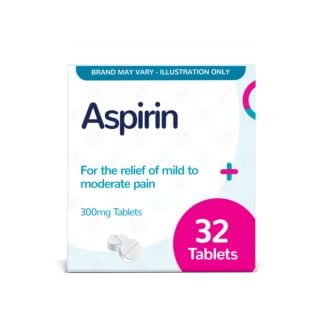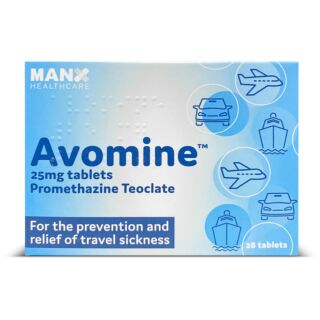What are the best cold and flu medicines for me?

When you feel the effects of the common cold or flu, which you will as there’s no cure and it is contagious, you will be looking for relief from the symptoms.
These include a blocked or a runny nose, a sore throat, sneezing, a headache, a raised temperature, or a cough.
The good news is, there is a wide range of treatments out there that will help provide relief for these symptoms and help you get over the cold or flu.
The treatment that you will need will, of course, be dependent on the symptoms that you experience.
Some treatments will be able to tackle multiple types of the symptom as well.
What are the most common medicines for a blocked or a runny nose?
For a blocked or a runny nose, the treatment you will be looking for will most likely be a nasal spray, though other types are available.
A blocked nose, also known as rhinitis, can be caused by a cold or by an allergy, such as hay fever.
Allergic rhinitis will require specific treatments that contain antihistamines that will help to stop the symptoms of the allergy.
For more information on hay fever and allergy treatments, check out our guide.
When it comes to treating a blocked or a runny nose, there are a number of ingredients that you should look out for.
One important thing to note is that nasal sprays should only be used for a maximum of 7 days.

Xylometazoline
This is a common ingredient that works as a decongestant to reduce the blockage in the nose.
This is done by thinning the blood vessels that have expanded as a result of the cold or other condition.
Oxymetazoline
Like Xylometazoline, this is a decongestant that helps to relieve a blocked nose by reducing the blood vessels in the nose and reopening the nasal passage.
Phenylephrine
Phenylephrine is also a decongestant but unlike the other two, is often found in many cold and flu treatments alongside other active ingredients.
It has been used for allergies in the past as well, though clinical trials have proven that it is nothing more than a placebo when it comes to relieving the effects of an allergy.
Pseudoephedrine
Another decongestant, pseudoephedrine helps to relieve a blockage in the nose.
It should not be used long-term and is only suitable for a short-term usage.
As for a runny nose, the same applies, as a runny nose is caused by mucus build up in the back of the nose.
The technical name for this is catarrh. Quite a number of treatments for a runny nose will also treat a sore throat, as both are often symptoms of the same thing.
What are the best medicines for a sore throat for me?
A sore throat can make eating food and drinking difficult, as well as feeling uncomfortable.
There is a number of solutions that will help to relieve a sore throat.
These include:
- Liquids
- Sprays
- Lozenges
- Pastilles
- Capsules
Many of these types of treatment will include the same active ingredients, just the dosage and the method of using them that changes.
Choosing the best one will depend on your own circumstances and what you feel the most comfortable using.
Chlorhexidine
Chlorhexidine is an antiseptic and disinfectant that helps to kill bacteria.
It is used in throat spray because its ability to kill germs and bacteria in the mouth, so much so that chlorhexidine can also be found in certain dental products.
It can also be used to sterilise surgical equipment and cleaning wounds, as well as in skin treatments.
Lidocaine
Lidocaine is an anaesthetic that is used to help relieve pain in sore throats when it is included in sprays.
You will also see lidocaine in many other treatments for pain, such as mouth ulcer and teething gels, skin creams, and ointments.
Benzydamine
Benzydamine is an anti-inflammatory drug that has anaesthetic qualities, which is why it is found in products for a sore throat.
Alongside sore throat treatments, benzydamine can be found in other products designed to relieve pain and inflammatory conditions in the mouth.
Menthol/Levomenthol
Menthol, also known as levomenthol, is a compound that is made from oils found in different types of mints, such as peppermint.
Menthol is used in products to treat a sore throat because it provides a cooling sensation when it is used.
Menthol is found in a number of different types of sore throat treatment, as well as headache treatments, and is common in lozenges and pastilles.
Menthol can also be found in skin treatments and inhalation products like Vicks Vaporub as well.
Benzocaine
Like lidocaine, benzocaine is an anaesthetic that helps to numb pain.
It can be found in treatments for mouth ulcers, cold sores, toothache, and more.
More often than not, you can’t go wrong with lozenges when it comes to treating a sore throat, as the liquid in them helps to soothe a sore throat. They are also nice to taste and easily available.
What are the main medicines for a headache?
For a headache, the best and most common form of treatment is painkillers.
Painkillers work by blocking the nerves in the body that us that we are experiencing pain.
There are a number of different types of a headache that can require different treatments to reduce the pain effectively.
Paracetamol
Paracetamol is a painkiller that is found in many different types of medication and available on shelves, so it is easy to access.
As it is commonly used to treat pain with little side effects, paracetamol is a treatment that you can trust to work.
Paracetamol can come in different forms; tablets, capsules and liquids.
Paracetamol medication is also one of the few treatments you can take when you are pregnant.
Ibuprofen
Another painkiller, ibuprofen is almost as common as paracetamol but it can also treat a fever and inflammation.
However, there are more potential side effects compared to paracetamol, including headaches (ironically), nausea, abdominal pain, and raised blood pressure.
Ibuprofen can also be found in gels for muscle pain and injuries.
Aspirin
Aspirin is a painkiller that is often found in tablets, capsules, powders, and gels.
Aside from being a painkiller, aspirin is also used to help reduce the risk of a stroke or heart attack. Long-term usage of low dose aspirin can also help to prevent blood clots.
Codeine
Codeine is a painkiller that is lesser known than the others and is mostly used to treat mild pain.
For stronger effects, codeine is often combined with other painkillers to form a more effective form of treatment.
One such example is co-codamol, which is paracetamol and codeine combined.
When it comes to taking codeine, it should only be used short-term, as codeine has a high risk of addictiveness.
Caffeine
Caffeine, perhaps the most consumed drug in the world, is what is known as a psychoactive drug.
A psychoactive drug change functions from the brain and can change mood, perception, behaviour, as well as other functions.
Unlike most psychoactive drugs, caffeine isn’t regulated anywhere.
Caffeine is included in cold treatments because of its stimulant properties, which helps with pain relief as when combined with paracetamol, it improves the level of pain relief provided.
Caffeine is also included in some shampoos because it is said that caffeine has hair loss prevention properties.
However, there is no evidence of any hair loss prevention from caffeine.
When it comes to treating a headache, paracetamol should be enough to provide relief, in most cases. If paracetamol doesn’t work, then either try another painkiller or go and see a doctor.
What are the main medicines for a fever/raised temperature?
A fever, where the body’s temperature rises over the usual 36-37oC, is caused by bacteria or an infection.
The temperature in the body rises in order to kill off certain bacteria types that may be susceptible to temperature changes.
The temperature change also kicks white blood cells into action, so that they can work on removing the bacteria and/or infection.
The actual best medicine for a fever is contentious.
This is because a fever is a response to an infection or bacteria, so lowering it can cause the infection to get worse.
Therefore, the best medicine for a fever is most likely non-medical.
Examples of non-medical fever treatments include staying hydrating and cold baths.
Basically, try to keep cool as much as possible.
If a fever doesn’t subside and the temperature rises, then you should go and see a doctor.

What are the best medicines for a cough?
The best medicine for a cough is very much dependant on the type of cough that you have.
There are different types of coughs, each with their own treatments that will reduce the effects.
The different types of a cough are:
- A dry Cough
- Tickly Cough
- Chesty Cough
- Mucus Cough
We have much more information about the best medicines for coughs in our guide.
What are the best medicines for a cold that will work for me?
When you have a cold the chances are that you will have more than one symptom as a result.
The most common is a blocked/ a runny nose (this may include sneezing as well), a sore throat, and a headache.
This will mean that you will need a form of treatment that can tackle multiple symptoms in order to provide relief.
Luckily, there are a number of different options out there. These are tablets, capsules and oral liquids.
Many cold treatments include the common painkillers, paracetamol, ibuprofen, aspirin, etc.
They will also include the active ingredients from other types of treatment.
They also include other ingredients that will vary depending on brand and type of treatment.
Guaifenesin
Guaifenesin is what is called an expectorant.
An expectorant helps to clear the chest or throat that now has mucus blocking it.
So in effect, it works like a decongestant does in helping to clear a blockage.
Guaifenesin is often found in mucus cough treatments for this reason.
Promethazine
Promethazine is an active ingredient that is found in numerous types of treatment, including hay fever and allergy treatments, travel sickness, and sleeping aids.
Promethazine is an antihistamine that also works as a sedative, which is why it can be used to help treat travel sickness and insomnia.
Though effective for numerous symptoms, promethazine should never be used long-term.
When it comes to finding the right medicine for a cold, you will need to consider the symptoms that you are experiencing and find the treatment with the active ingredients that will help with providing relief.
What are the ideal medicines for the flu for me?
When it comes to treating the flu, many treatments are the same as for a cold and will say as much on the packaging.
There are some flu-specific treatments though, but these will only include the same active ingredients as combined cold and flu treatments.
There is one ingredient another ingredient that isn’t medicinal in nature but can help with relieving the symptoms of the flu.
Vitamin C
Vitamin C, also known as ascorbic acid (which it may be listed as on some medicines), is notable in that it helps to prevent scurvy, as vitamin C deficiency is a primary cause.
It is needed in the human body because it helps the body in a number of important functions, which is why it is included in numerous dietary and food supplements.
Vitamin C helps the body to heal wounds, absorb iron, and maintain teeth and bones.
Vitamin C has been part of cold and flu treatments because of claims that it helps in preventing cold and flu symptoms.
However, tests have proven that this is not the case, though it can reduce the time that a cold or flu that it lasts for.
Ultimately, when it comes to flu treatments, look for one that will help relieve the symptoms that you are experiencing and use it as recommended.
If you try a medication and it does not work, then what you should do is speak to a doctor.



